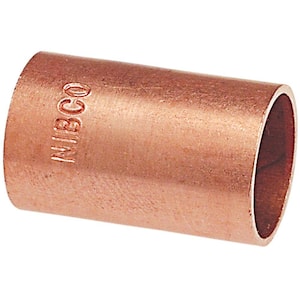Exploring the Diverse Applications of Copper Products in Modern Industries
From enhancing the effectiveness of electric systems to playing a critical duty in sustainable energy technologies, the flexibility of copper is obvious. As sectors significantly focus on innovation and sustainability, the diverse applications of copper call for a closer evaluation, particularly concerning their potential effect on future technological innovations and environmental methods.
Electrical Applications of Copper
Copper is a necessary product in the electric sector, representing about 60% of the overall need for non-ferrous steels internationally - Copper Products. Its remarkable electrical conductivity, which is virtually two times that of light weight aluminum, makes it the recommended choice for a vast array of electric applications. From circuitry systems in property and industrial buildings to high-voltage power transmission lines, copper ensures effectiveness and reliability in electrical energy shipment
Along with wiring, copper is important to the manufacturing of electric elements such as motors, transformers, and generators. These components leverage copper's thermal conductivity and malleability, essential for heat dissipation and effective performance. Copper's resistance to corrosion boosts the lifespan and durability of electrical systems, making it a cost-efficient solution in the long term.
The development of eco-friendly power resources, such as solar and wind power, has additionally enhanced the need for copper in electric applications. As markets transition towards lasting power services, copper's duty becomes a lot more crucial. On the whole, the convenience and efficiency attributes of copper strengthen its status as a foundation material within the electric market, driving development and performance throughout different applications.
Plumbing and Piping Solutions
In modern-day plumbing systems, the choice of materials substantially influences both capability and longevity. Copper has emerged as a favored alternative because of its unique properties, consisting of corrosion resistance and antimicrobial qualities. These characteristics make sure that copper piping continues to be durable and risk-free for transporting drinkable water, an important consideration in domestic and business applications.
Among the key advantages of copper in pipes is its capability to withstand heats and stress, making it suitable for a variety of applications, from warm water systems to home heating and cooling down networks. In addition, copper's adaptability allows for easier installment in intricate piping layouts, decreasing the threat of failings and leaks.
One more noteworthy benefit is copper's lengthy life expectancy, typically surpassing half a century with proper maintenance. This long life not only minimizes replacement expenses but also adds to sustainable practices by lowering waste. Additionally, copper's recyclability straightens with contemporary ecological criteria, advertising a round economic climate within the plumbing market.
Copper in Renewable Resource
The versatility of copper prolongs beyond plumbing applications, playing an important role in the sustainable energy market. In solar panels, copper is made use of in photovoltaic or pv cells and circuitry, promoting effective power conversion and transmission.

In addition, as the worldwide demand for electric lorries (EVs) increases, copper's duty in battery systems and charging infrastructure ends up being even more significant. The product's capacity to carry out power effectively is essential to the efficiency of EV batteries, improving variety and charging speed.
Copper's Duty in Electronic devices
Electronics making counts heavily on copper's remarkable residential or commercial properties, specifically its high electric conductivity and thermal performance. These characteristics make copper an ideal option for a variety of digital parts, consisting of adapters, circuit boards, and circuitry. The metal's capability to effectively transfer electrical signals guarantees marginal power loss, which is essential in high-performance digital tools.
Additionally, copper's thermal conductivity plays a significant duty in heat dissipation, protecting delicate components from overheating. This is especially essential in modern-day electronics, where portable styles lead to enhanced warm generation. Copper is additionally preferred for its malleability and ductility, allowing it to be easily shaped right into complex layouts that satisfy the demands of sophisticated electronic applications.
With the surge of customer electronics, telecoms, and electrical cars, the need for copper in the electronic devices market proceeds to grow. Thus, copper continues to be a foundation product in the ever-expanding area of electronics.
Ingenious Utilizes in Manufacturing

One notable application remains in additive manufacturing, where copper-based products are employed in 3D printing procedures. This permits the development of complex geometries and lightweight elements, especially in the aerospace and vehicle sectors. Additionally, copper's thermal conductivity makes it a suitable selection for heat exchangers, boosting effectiveness in commercial cooling systems.
Furthermore, the increase of clever production has seen the unification of copper in IoT gadgets, where its conductive capacities sustain advanced picking up modern technologies. In the world of renewable resource, copper is pivotal in the manufacturing of photovoltaic panels and wind generators, promoting why not try these out extra efficient energy conversion and distribution.
As markets aim for sustainability and technology, copper's adaptability and efficiency remain to position it as a critical product, driving innovations in manufacturing and adding to the development of smarter, much more efficient items.
Conclusion
The integral duty of copper in renewable power and its necessary function in electronic devices underscore its significance in progressing sustainable methods. Collectively, these applications show copper's important payment to technical progress and industrial performance in contemporary society.
From enhancing the efficiency of electric systems to playing a critical duty in sustainable power innovations, the adaptability of copper is obvious. As industries progressively prioritize advancement and sustainability, the diverse applications of copper necessitate a closer assessment, particularly regarding their potential effect on future technical improvements and environmental techniques.
The growth of sustainable energy resources, such as solar and wind power, has actually better Clicking Here enhanced the demand for copper in electric applications. Generally, the flexibility and performance qualities of copper solidify its status as a cornerstone product within the electrical industry, driving advancement and efficiency throughout various applications.
The versatility of copper expands past pipes applications, playing an essential role in the sustainable power market.